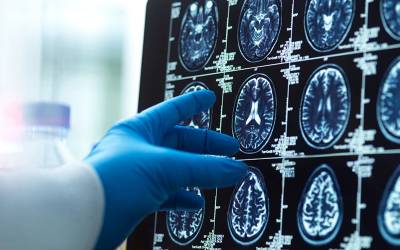
In a groundbreaking development, researchers have unveiled faster MRI scans that promise to significantly enhance dementia diagnosis. These findings, published in the journal Alzheimer’s & Dementia, aim to eliminate the so-called ‘postcode lottery’ in dementia diagnosis by making scans more accessible and affordable. The study suggests that these accelerated scans could potentially double the number of dementia assessments conducted daily.
Professor Nick Fox, Director of the UCL Dementia Research Centre at the UCL Queen Square Institute of Neurology, emphasized the importance of this advancement. “As more treatments that can slow or change the course of dementia are being developed, it’s important to make sure MRI scans are available to everyone,” he stated. “This is because people living with dementia often need an MRI scan as part of their diagnosis before they can access these treatments.”
Revolutionizing Diagnosis with Parallel Imaging
The study explored the use of parallel imaging techniques to expedite MRI scans in clinical settings. This approach could pave the way for a future where every individual with dementia can receive a diagnosis through a scan. MRI scans are crucial in accurately diagnosing dementia, ruling out other symptom causes, and identifying specific dementia types. Moreover, emerging treatments like lecanemab and donanemab require MRI scans for both initial diagnosis and ongoing safety monitoring.
The ADMIRA study, partially funded by Alzheimer’s Society’s Heather Corrie Impact Fund, aimed to assess the reliability of these fast MRI scans compared to traditional clinical scans. The research team, including neurologists and experts from the UCL Hawkes Institute and the UCL Advanced Research Computing Centre, conducted the study on 92 patients in an outpatient setting.
Breakthroughs in Scanner Technology
Co-author Professor Geoff Parker from the UCL Hawkes Institute and UCL Medical Physics and Biomedical Engineering highlighted the technological advancements that made this study possible. “Our research has taken advantage of recent breakthroughs in scanner technology. Our task was to work out just how fast we could scan while maintaining image quality good enough for diagnosis,” he explained.
The study revealed that the accelerated scans reduced time in the scanner by 63% while maintaining diagnostic reliability and image quality equivalent to standard scans. Dr. Miguel Rosa-Grilo, the study’s first author, expressed confidence in the results. “We were confident that the new scan would prove non-inferior to the standard scan, given the high image quality – but it was remarkable how well it performed,” he noted.
Implications for Healthcare Access and Costs
Richard Oakley, Associate Director of Research and Innovation at Alzheimer’s Society, underscored the potential impact of these findings on healthcare access. “Dementia is the UK’s biggest killer, but one in three people living with the condition haven’t had a diagnosis. An early and accurate diagnosis isn’t just a label, it’s the first step to getting vital care, support, and treatment,” he remarked.
While MRIs are not the only diagnostic tool for dementia, they remain underutilized due to their cost and limited availability. The introduction of faster MRIs, which take less than half the time of standard scans, could democratize access to these essential diagnostic tools, reducing costs and increasing availability.
Oakley also acknowledged the patient experience, noting that MRI scans can be uncomfortable and intimidating. “Anything we can do to make it an easier process is really positive,” he added.
Next Steps and Future Research
The initial testing of this shortened MRI scan was conducted at a single specialist center with one type of MRI scanner. Researchers are now focused on ensuring the technique’s applicability across various scanner types and patient demographics. The goal is to extend the benefits of this innovation to as many hospitals and clinics as possible.
The announcement comes as a significant step forward in dementia care, promising to improve diagnostic accuracy and accessibility. As the research progresses, the potential for these faster MRI scans to transform dementia diagnosis and treatment continues to grow, offering new hope to millions affected by the condition worldwide.






